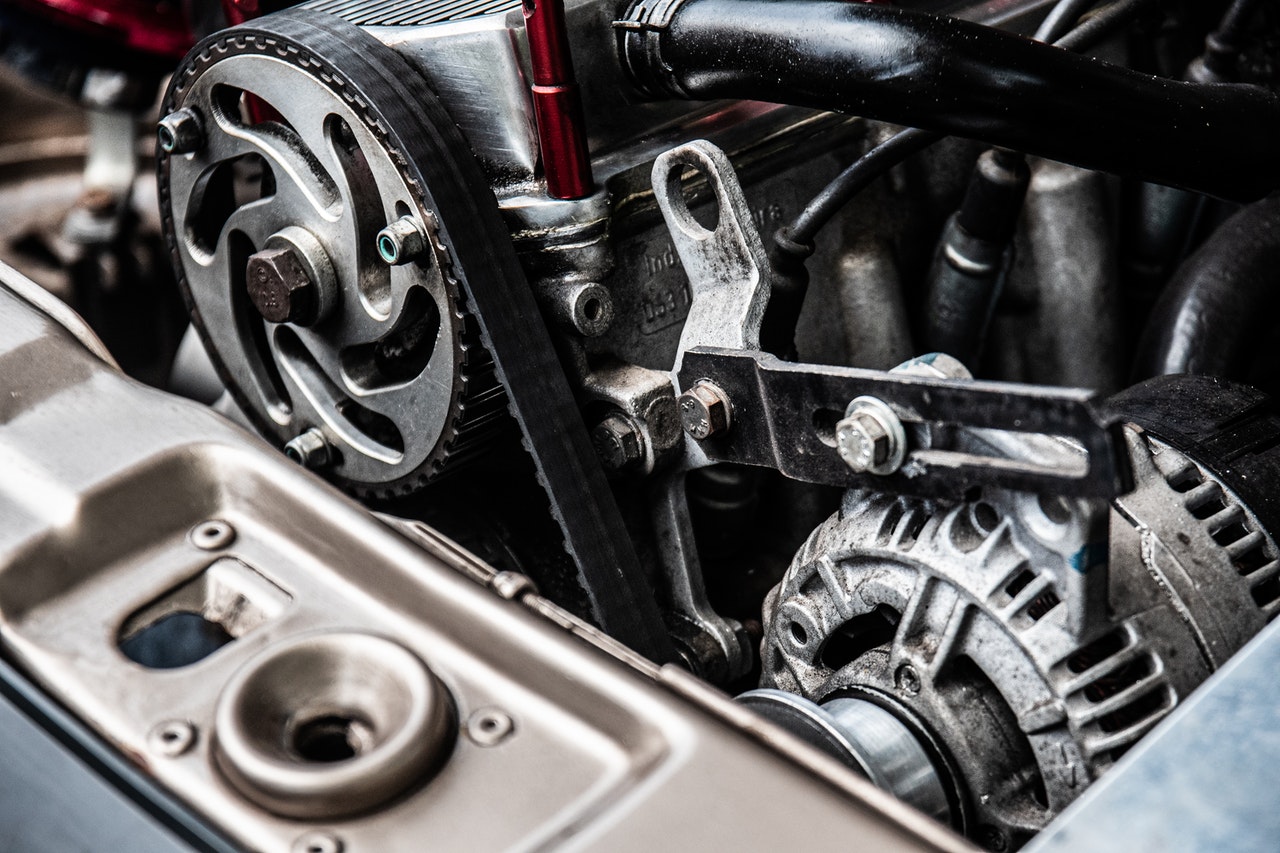
In essence, car fluids play a critical role in ensuring the optimal performance and safety of cars while on the road. If you notice leaking from underneath your car, this is a clear sign of engine oil leakage. This post will discuss in length one of the most common types of car fluid leakage- engine oil leak. We will also highlight other types of car fluid leaks, ways on how to identify them and which parts they typically manifest themselves.
Different Types of Car Fluids and Where to Observe Them
- Steering Fluid Leak
Leakage of steering fluid typically manifests itself a s thin brown or red-coloured liquid leaking around the front portion of the car.
- Antifreeze Fluid Leak
A clear indication of antifreeze fluid is the appearance of a patch of thick fluid, usually yellow, pink, or green in colour around or underneath your vehicle.
- Transmission Fluid Leak
If you notice a thick patch of brown or red liquid at the midsection of your car while stationary, this is indicative of transmission fluid leak.
- Water Leak
As it is a water leak, you will notice a small pool of clear and odourless liquid underneath your car.
- Brake Fluid Leak
Your brake fluid is leaking if you notice an oily patch with a clear to brown tinge near the passenger side seat or around any of your car’s wheels.
Take note that a large amount of fluid patch under or around your car is a positive sign that your car is suffering from several fluid leaks.
Why Should You Maintain Optimal Car Oil Level?
The engine is inarguably one of the most vital parts of your vehicle as it keeps your car in motion. Different components of your engine work simultaneously to ensure your car is operating smoothly. Various parts rub or touch each other while your car is in motion leading to friction. Engine oil plays a key role in lubricating engine components to reduce fiction and ensure that your car operates smoothly. Car engine oil also enhances the lifespan and usability of your engine as a whole.
To ensure that your engine is running smoothly at all times and all parts will run in sync, it’s imperative to use superior-quality engine oil. You need to change your engine oil periodically. You may implement this measure all by yourself or go to a trusted auto mechanic if you aren’t too familiar with how the process is done. Ideally, you should conduct an oil change every five months or every 5,000 miles. Neglecting this activity can result in excessive fiction that may lead to corrosion and other more costly problems in the future.
Additionally, failure to change your engine oil as recommended can result in the engine oil’s inherent viscosity and lubricating ability. When your engine oil becomes dirty, there is a big chance that the overall performance of your engine drops significantly, too.
Inconsistency or irregularity in oil changes usually manifest itself as an oil leak. If you notice a small puddle of brown leak underneath or at the front of your car, this is a clear sign that your engine oil is leaking. This may be harder to spot if you have a cover placed underneath the engine. To positively identify a car engine leak, you need to perform a thorough inspection by popping the hood of your car to check if your engine is covered in oil or if there are puddles that have collected around the engine.
What are the Causes of Car Engine Oil Leak?
- Worn Out Gaskets and Oil Pans
Car engine oil for lubrication is usually held in place then pumped by a pan or gasket. This is located at the bottom of the engine. If you regularly travel through rough roads with loose gravel or other debris, you will most likely suffer from a damaged pan or gaskets leading to slow leakage of car engine oil.
- Improper Installation of Engine Oil Components
You are more likely to experience it when the oil pan and gasket are installed too tight. By rule, the pan or gaskets should be secured with just an evenly distributed tightness. Consequently, if the pan or gaskets are fitted loosely, this can result in engine oil leak, too.
- Ineffective Valve Seals and Rings
A damaged or defective valve ring or seals in your engine oil system can result in small oil leaks. Do not forget to check for engine oil leaks when your car is stationary. But bear in mind that car leaks may also happen while your car is in motion. In this case, the heat from the engine may cause evaporation of the leaking oil producing a noticeable odour.
An oil leak, when left ignored, can result in significant damage to different engine components. The best way to avoid costly repairs and inconvenience is to bring your engine to a reliable car mechanic in Sydney for car servicing. Regular inspection will be helpful in ensuring your safety on the road and saving you money in the long run. HP Automotive is your trusted auto mechanic shop in Sydney. If you wish to learn more about the different car servicing we provide or schedule a visit, call our direct line on +61 2 9979 9372 today.
